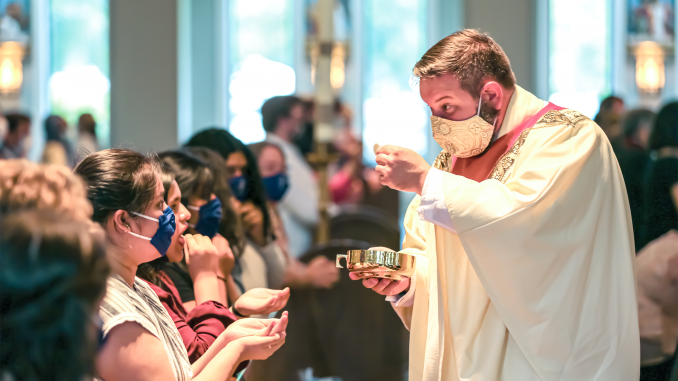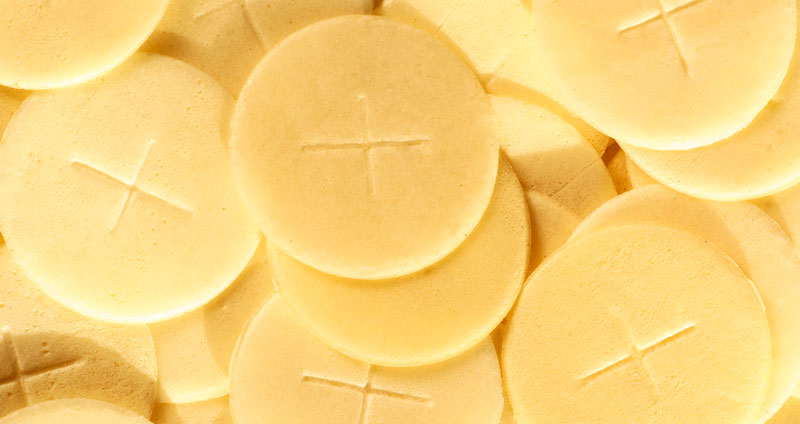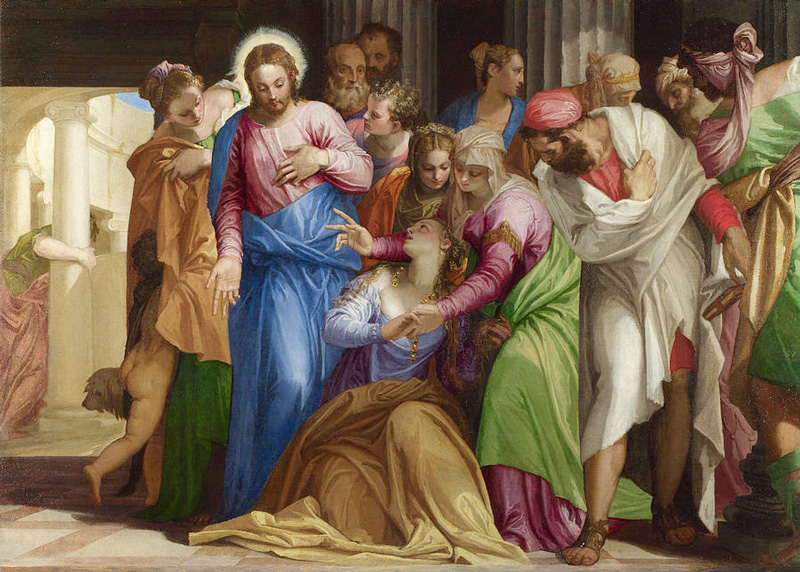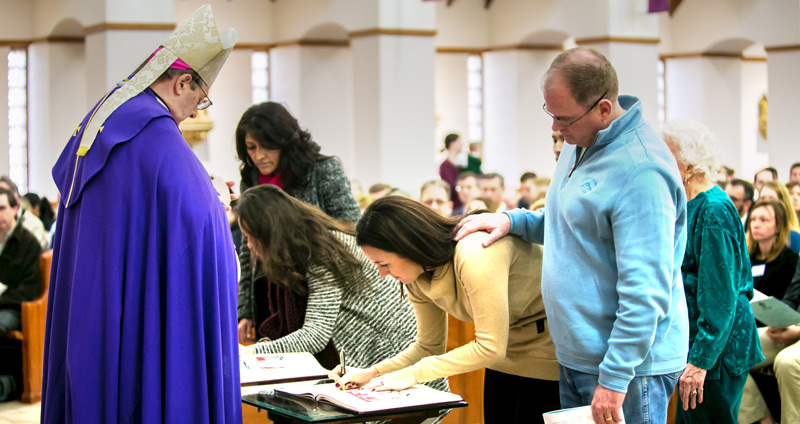
I admit that I was in a daze when COVID-19 began its first known rapid spread throughout the USA in March. I had just unexpectedly put to rest my close friend Father Marcin Zahuta. At that point, neither the additional assignment of founding a new parish community during a global shutdown nor the gravity of one diocese after another indefinitely closing off the lay faithful from their churches and the Sacraments had really sunk in. In most places, there was some combination of no public Masses, no confessions, no baptisms, no confirmations, no weddings, no funerals, and no Last Rites.
We will likely never be able to fully appreciate the difficulty in which those steps were painstakingly taken, and we are already forgetting what little was known about COVID-19 at the time. Moreover, it is always easier to judge in retrospect what would have made more sense or had more positive outcomes. Nevertheless, it seems now that it would have been wiser for bishops in most parts of the country to not cease the Sacraments publicly, but to temporarily dispense of the Sunday obligation of attending Mass and impose protocols for the protection of those still coming. While the consequences of these decisions remain to be fully seen, what has become clear is that many local churches now find themselves unable to make a case to governments worldwide for reopening their doors to the faithful.
In the dioceses that have been able to reopen to some degree, the baptized have responded in a variety of ways. Many grew beautifully through this “Lent of Lents.” They found a greater appreciation for what they were unable to receive for weeks or months. They reflected more on the Word of God and the lives of the saints. They joined Zoom Bible studies or other faith share and catechetical programs. They found greater focus in watching Mass on TV or the internet. They took more time focusing upon their marriages and families. Great creativity was born of those eager to go deeper. The pastor I was living with encouraged family members to wash each others’ feet in their own homes on Holy Thursday. Some took the joy of the Gospel to assisted living facilities and hospital beds, singing outside their windows. Now, in returning to their churches, these faithful are filled with immense gratitude for the Sacraments. Their challenge will be to continue to support their bishop and pastors as various norms have been temporarily suspended, and safety protocols have been enacted that seem inconvenient or an added penance to worship as it once was.
Regrettably, I have also experienced a number of less than edifying responses among the baptized that are persisting. Some, who classify as “low-risk,” have grown too comfortable with the dispensation from the obligation of attending Sunday Mass in person. I sympathize particularly with young working parents who are relieved to not have to get kids ready, to fight with their teenagers about whether to go in person, or to worry about receiving a glaring eye when their baby starts crying. Moreover, by not attempting to go, they do not risk being turned away from Mass, if the church has inadequate space or is at capacity by the time they arrive. Yet, they need to be challenged with the fact that if they have no problem with shopping for nonessential items and eating out at restaurants and, if they are sending their children back to school in person, then why are they avoiding coming back to Sunday Mass or even a less populated weekday Mass? They also need to be reminded that the Third Commandment to ‘Keep Holy the Sabbath’ remains, even though the dispensation from Sunday Mass is still in place. Each household continues to have an opportunity to sanctify the home by creating and solidifying family traditions that help it become what the Church Fathers called the “miniature church” or what contemporary theology calls the “domestic church.”
Another group of people initially chided bishops and pastors about reopening too quickly or of not mandating enough safety precautions and closely following them. Some eventually made the prudential judgment to risk coming back to Mass in person on a weekday or to pray in the Church when few were around. However, they lose interior peace when they nitpick over “infractions” against social distancing guidelines mandated by their dioceses, recommended by the CDC or local ordinances. One of the most common frustrations for them is seeing others not wearing face masks as some churches only “highly suggest” their usage. I challenge them to acknowledge that in many cases they were overly cautious before the pandemic began. As such, they should consider whether their fear of this virus is inordinate. Simultaneously, I encourage individuals who do not wear face masks to help our more cautious Christian brothers and sisters to keep their peace (cf. Rom 14:1-5). Instead of telling them or others that they are worried more about life on earth rather than life eternal, just wear a face mask. Even if you’ve read that they are ineffective, just do it as an act of charity and penance.
Another group is made up of persons who have regrettably decided to not step foot in a church until there is no longer a face mask ordinance or until, as they put it, “this hoax is over Nov. 3.” When others throughout the world still do not have a choice, I’m deeply pained that they continue to cut themselves off from the graces of God that comes from the Sacraments. During the first three centuries of Christianity and even today in countries hostile to Christians, the faithful find creative ways to participate in, not abandon, Mass.
The most tragic and shocking response I have repeatedly witnessed comes from those who attend Mass and approach the altar, yet refuse to receive Holy Communion, because a cleric gently asks them to welcome Jesus in the hand rather than on the tongue. As if this were not troublesome enough, these individuals sometimes scowl or utter words of indignation. If one’s hands are disposed by holding an infant, then the distributor of Holy Communion should most certainly work with the individual. Nevertheless, the request is being made out of respect for the Bishop’s recommendation to ensure the safety of all and expediency, as placing one’s hand near an uncovered mouth would necessitate its sterilization each time.
What has added fuel to the fire in this last situation are a number of articles across the blogosphere that invoke documents from the Holy See or our U.S. Conference of Catholic Bishops. These rightly acknowledge that the reception of Holy Communion on the tongue is a long-standing norm of Mother Church — no one disputes this fact. However, these canon lawyers, liturgists and their followers have seriously missed several fundamental realities and morals that I hope they will take to heart and amend their conclusions.
First, as I previously stated, there are many norms that were or continue to be temporarily suspended, particularly due to government ordinances or bishops genuinely concerned for their flocks. In some dioceses, Masses can only be said outdoors. In others, Communion is given after Mass has concluded or during Mass in the hand behind a plexiglass-type booth. In one territory, priests have been forbidden to preach more than five minutes to help with air quality. In another area, marriages have now been permitted at the wedding venue site, rather than a church. And across the board, the distribution of the Precious Blood is not likely to return anytime soon. Whether these and other temporary changes to norms are overkill or not, they do not invalidate the graces that comes from the Sacraments. Shouldn’t we just acknowledge the great gift that we once again have in the Eucharist? And if we acknowledge that fact, then our personal preferences should mean little.
Second, my parents taught me the “Nike principle” growing up. If your parents or a guardian asks you to do something, you are obliged to “just do it” in obedience, unless what they ask is in itself sinful. It doesn’t matter if your natural or spiritual parent(s) is a sinner or has questionable intentions, if it is not sinful, then “just do it.” Cardinal Robert Sarah, Prefect for the Congregation for Divine Worship, recently affirmed this principle of obedience regarding liturgical matters: “In times of difficulty (e.g. wars, pandemics), Bishops and Episcopal Conferences can give provisional norms which must be obeyed. Obedience safeguards the treasure entrusted to the Church. The measures given by the Bishops and Episcopal Conferences expire when the situation returns to normal.” Furthermore, as the spiritual masters and saints teach us, there is more merit in willingly doing a job the way you’re asked, especially if you prefer another way. Hence, there is potential here for a more — not less — fruitful reception of the Eucharist. Moreover, the culpability of carrying out such actions falls on the parents, not the children.
This brings me to the story of Naaman the Syrian who travels to Israel to attempt to purchase a cure for his leprosy (2 Kings 5). Naaman storms off in a rage because he judges Elisha’s instructions to be overly simplistic and not “on par” with how he thought he should be healed. His servants have to follow him and beg him to humbly accept the prophet’s simple instructions. As one of your servants in the vineyard, I plead with these individuals to not act like the pagan Namaan. It is unbecoming of a Christian. Never refuse to receive the Eucharist in the hand when a cleric or extraordinary minister of Holy Communion asks. Those who have should repent and go to confession for rejecting the grace of God. Remember that God only heals those who humble themselves before Him. He doesn’t respond well to demands.
Third, there’s the old adage: “Beggars can’t be choosers.” Please, remember that we are beggars of the mercy of God. We are not entitled to His mercy. The love of God poured out on the cross of Calvary is the greatest gift ever. If the doctrine that the Eucharist is an unmerited gift from God is to remain, no one should claim a right of preference in the way they receive it. Elisha rejected payment from Naaman for his cure to let him know that beggars only receive gifts.
Fourth, many have been engrained with the notion that reception of Holy Communion in the hand or chewing the Host is an abomination and sinful for the laity. Both seem unintelligent to me in light of the Christmas story where lay people (Joseph, Mary, kings, shepherds, etc.) hold the Lord of Hosts, the Infant Child Jesus, in their hands and when Jesus tells his disciples in the Bread of Life discourse that they must gnaw on his Flesh. Surely, some who receive in the hand do so irreverently. Nevertheless, some who receive on the tongue have much to learn about filial piety. These latter individuals should reflect upon at what point their fear of receiving Holy Communion irreverently becomes inordinate and therefore a matter of scrupulosity.
No matter what category above you most closely identify with, please take my exhortations to heart. The Body of Christ is hurting and is not at its best when the laity are complaining about norms that have been temporarily suspended and protocols that are not stringent enough. Continuing to make use of the temporary dispensation from Sunday Mass makes sense for high-risk individuals, many of whom have told me they would die to be able to return to in-person Mass. For most others it does not. For those of you coming back to Mass, it is great to see you once again. Encourage your low-risk friends and family to return. But please don’t tie up the Communion line with your insistence for a preference that many still don’t have the luxury to make. No matter the difficulties you are facing, remember that you have an opportunity for penance. Do it with me.
Father David Nerbun has a doctorate in Sacred Theology from the Pontifical John Paul II Institute for Studies on Marriage and Family. He is the diocesan vicar for Family Life, chaplain to Coastal Carolina University, is forming the new Catholic Community in Carolina Forest, and is in residence at St. Andrew Church in Myrtle Beach.



